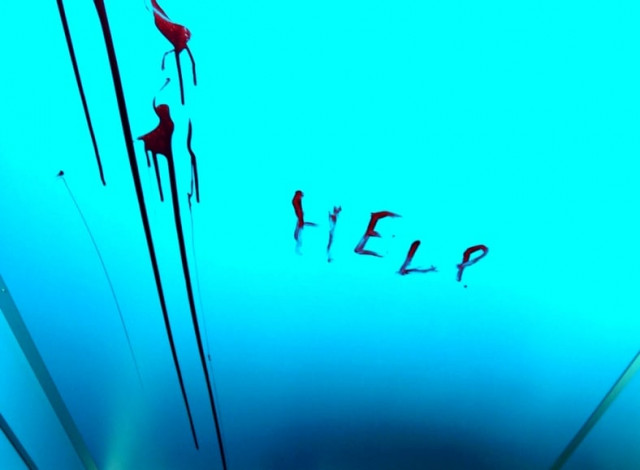Everything in its right place
OCD appears laughably simple, sometimes even to those who suffer from it.

Everything in its right place
One two three four. One two three four. One two three four. One two three four. One two three “now I can just trust in God and pick up my book”. Quickly pick up book: check. Have no ‘unwanted’ thoughts during this time: check. And if this whole process doesn’t feel JUST right, you do it again. Sometimes up to a hundred times, but mostly about ten or twenty.
All this happens because 19 (4 fours and a three) is a good number. So are 21, 29, 7 and 43 (but not 143); on the other hand, 12, 13, 6, 78 and 182 are not. There is no reason as to why they are what they are, at least not anymore. What started out as a semi-rational avoidance of certain numbers is now a militaristic regimen which, at times, controls my life.
I have obsessive-compulsive disorder or OCD. Unlike many other people who suffer from psychiatric diseases, diagnosis was of little relief to me. In fact, it was a bit of an anticlimax, because I already knew what was wrong when I went to a well-known doctor. He wouldn’t give me the time of the day. It took seven years, and a significant worsening of the symptoms, for me to go see a doctor again. And while this second doctor was a lot more helpful, he simply wasn’t qualified enough to treat a somewhat unforthcoming patient. I eventually lied that I was completely better to get rid of the increasingly frustrating therapy sessions. OCD is different from other mental illnesses because you know you have OCD. You know you’re in control, and these thoughts and resulting compulsions are irrational. And yet you do them anyway. So you have unwanted thoughts (obsessions) that make you uncomfortable, and you perform rituals (compulsions) to try and alleviate this discomfort. Except this relief is only temporary, so then it’s more obsessions and more compulsions. This feeling of going around in circles is deadening.
The ‘disease’ (disorder, therapist no. 2 always reminded me; it’s a disorder) has mutated so much over the years that it’s hard to recognise. It started with a persistent unwanted thought when I was 18: I kept thinking of the words “I hope my mother dies”. The more I tried to get rid of this thought, the more entrenched it became. So I made the first of many homemade antidotes: “I hope my mother doesn’t die”. Saying this again and again, sometimes silently, other times under my breath, and aloud when alone, I thought I could get rid of this unwanted thought.
In retrospect, I gave that thought too much importance. If I’d ignored it then, it might have gone away. I left it to fester, and it became a sore. More unwanted thoughts popped up, with more ‘solutions’. People were going to die, go to hell, I was going to fail my exams; any rational fear could be converted into an irrational, incoherent dread. OCD is often called a disease of pathological doubt (by Wikipedia, not me), which sounds exactly right. I spent hours obsessing over whether I’d had a ‘wrong’ thought, and then trying to pacify myself by either clarifying that I’d actually thought something else, or explaining away the thought. It took up more and more of my time, until it was what I was doing, actively or passively, for the better part of the day.
Other than picking up books, I have had discomfort (ranging from mild to incapacitating) starting to eat, turning on a computer, praying, washing my hands; anything that could be doubted (and some that couldn’t, but I doubted them anyway). About three years ago, at its absolute worst, a change of clothes and trying (and failing repeatedly) to make a phone call could take up three hours. That is what eventually drove me back to therapy.
OCD is also a very embarrassing disorder, because you hold on to doorknobs too long, mumble things which people overhear and which you then have to deny. You also disappear from restaurants when food is served so you can go be alone and start ‘right’. The definition of right is, of course, subjective. The self-awareness, however, is amusing by now, because I’ve had the time to look at and laugh at the silliness of what I do. I’ve read stories about people suffering from other variations on this theme — their OCD is based on a fear of germs, or of being responsible for accidents — and their concerns seem downright hilarious to me.
I’m also always on the lookout for reassurance. Did I have that thought? Will God forgive me for it? Will said unwanted thing happen because I said it? I know the answers to all these questions. They’re easy. But somehow I can’t shake the feeling that it might happen anyway. So I go and ask people I think would know. My cousin. My doctor. My friends. It’s taken a while, but now I’m comfortable enough telling my closest friends about it. And their reassurances help, for a while. Then it’s back to square zero and more reassurances and more relapses and so on.
I don’t think this disorder will go away completely, and by now I’m more or less comfortable with this thought. People with OCD can live more or less normal lives if treated (yourself, or by a therapist); untreated, it becomes impossible to manage. Maybe I’ll see another psychiatrist at some point. If that sounds underwhelming, it probably is.
Published in The Express Tribune, Sunday Magazine, March 4th, 2012.



















COMMENTS
Comments are moderated and generally will be posted if they are on-topic and not abusive.
For more information, please see our Comments FAQ